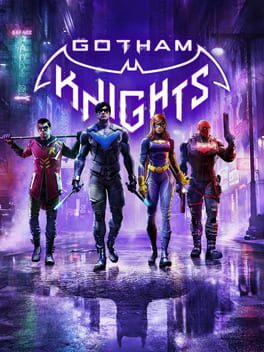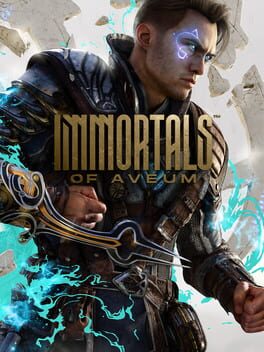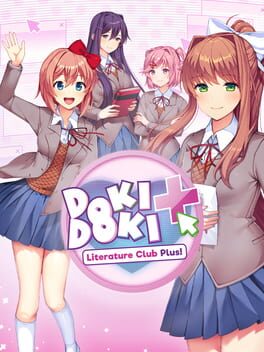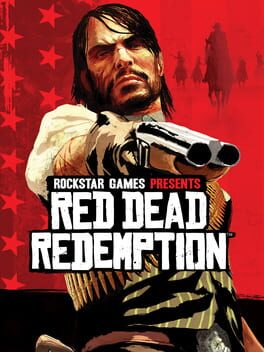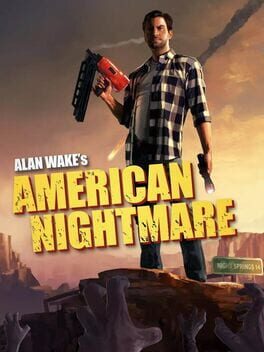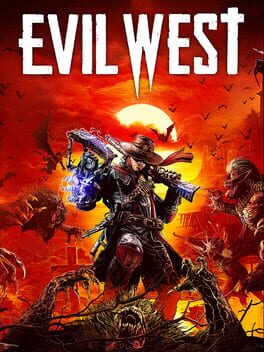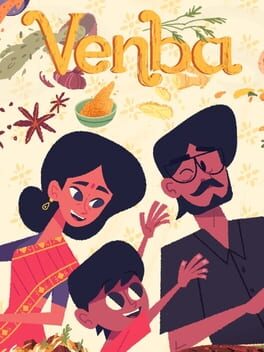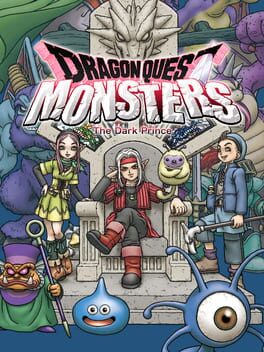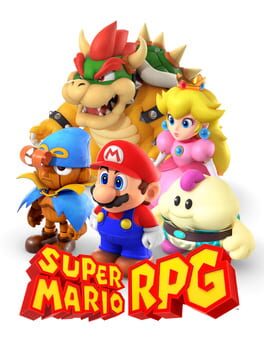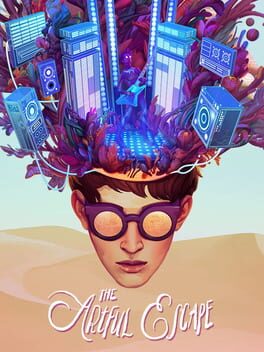Jinzuku
BACKER
This was my first time playing anything "Silent Hill". For a game that has you mostly walking, you walk painstakingly slow. It does try to shake things up by throwing out uninteresting cutscenes and chasing sequences that make no sense, where you have no idea where you're supposed to go. The thing that made me the most uneasy was that the main character has her hair behind her glasses. Who does that?
2022
I have much in common with this game; I'm also not as good as Batman. Each of the four playable Batman sidekicks is remarkably less capable than their mentor. There's also no incentive to play as a particular character, so once you've picked one, you undoubtedly won't bother switching. Enemies become such massive damage sponges that I dropped the difficulty to Easy in the last chapter. It wouldn't be an issue if you engaged in the numerous copy-and-paste missions on the city map. While I believe that RPG elements make games more interesting, this was the exception to the rule.
2023
Trading guns for magic, you play as one of the special few who can wield all three colours of the arcane. You are armed with Blue (a Rifle), Red (a Shotgun), and Green (a Machine Gun) to mow down your foes. The writing is fun, and the voice acting is good. Although, you might struggle to find a character you actually like, as they are all different shades of asshole. The game claims you can build your character to fit your playstyle, focusing on powering up one colour or evenly spreading your points across all three. However, it then throws you encounters that require specific colours to defeat enemies, spitting in the face of those claims. Sometimes, a game can simply be "good". They don't have to all be masterpieces.
I don't usually play games like this, but I was intrigued that it was tagged as a Horror game. This is one of those games that the less you know going into it, the better. While it starts as a harmless game of you being roped into joining a high school Literature Club, things get weird. It was endearing enough to replay it a few times to get all the different outcomes and endings.
Every fibre of my being wanted to love this, and in many ways, I do. However, I often felt weary of some aspects of the game. Some of the zones you travel to are very cumbersome, making it a pain to complete the numerous and dull side activities. That being said, the best parts were the linear parts that follow the main story, which hit unbelievably hard. The worst part of the whole thing is that it feels like no minigame idea was turned down. Some of which are mandatory, and some have weapons behind them. If you are a completionist like me, you'll have a rough time seeing everything the game offers.
Probably the best iteration in this long-standing series. Ryu Ga Gotoku Studio never disappoints in delivering the perfect blend of seriousness and zaniness while showcasing some of the best visuals. Changing the location from Japan to Hawaii is a breath of fresh air, which goes a long way. The combat is much improved from the previous game, which raised the bar for turn-based RPGs. It's a shame they kept the mechanic of getting a game over if the main character is knocked out. The only downside is that I wasn't personally a fan of the main side activity. Still, none of that detracts from its overall quality. No one makes me smile as much as Ichiban Kasuga.
2010
I found myself constantly bored while playing this. The world is dull, and the characters are even duller. Every time I was glad to get to the end of the game, I was slapped with the reality that there was still more to go. The best thing about the game was that it has you match the speed of an NPC when you are following them, something I can't understand why it isn't a standard thing in games. Deadeye was good fun though, I'll give it that.
It doesn't add anything to the overall story of Remedy's Universe. Still, having more around the struggle between the main protagonist and his dark alter ego is nice. The gameplay is the same as the first game, with some new weapons you'll likely not use in favour of the classic set-up. The Twilight Zone-like narrator is enjoyable to listen to. I don't think I will ever get tired of hearing "Champion of Light" and "Herald of Darkness".
2022
It has shades of the recent God of War games but is average in all aspects. The environments and enemies look amazing, but the overall graphical quality gives the impression that it's a few years older than it is. The combat is very satisfying, but the encounters continuously feel like an unfair assortment of vampiric creatures are thrown at you. Luckily, you are given a wide range of overpowered tools, fuelled with lightning and gunpowder, to dispatch them. Even if some of them take a few attempts to get through. Redfall wishes it was this good.
2023
Being of Indian heritage and having children, I resonated greatly with the story. Even without that, it hits many strong notes in its short runtime. The gameplay consists of cooking puzzles where you initially try to follow your mother's recipe, which is partly damaged by time. Once you've pieced it all together, you are left with dishes that give you a deep sense of hunger. As the game progresses, the challenge lessens as you become more comfortable with your culinary skills.
Unless you like your monster-catching games full of grind and devoid of heart and soul, I'd avoid Dragon Quest's attempt at Pokémon. However, they did manage to emulate Pokémon's recent frame rate drops and added their own awful voice acting and excessive loading screens. As for the creatures you'll be adding to your four-person squad, you'll change your members so regularly that it'll be hard to get attached to any of them. This is because monsters are separated into in-game tiers, with higher tiers eclipsing the lower ones in viability. This also has the horrible side effect that even if you find a creature you are fond of, you won't be able to keep it in your party for long. You know it's poorly planned when the default names of some monsters are longer than the character limit for names, causing them to cut off.
2023
After playing the first game only a month prior, I was sceptical about all the accolades it received. At first, this didn't shift until a certain point in the game, when I experienced something that blew me away. There are two protagonists in the story, and after a moment, you can swap between them in safe areas with minimal impact on the story and each other. This is because they are in different locations, different planes of existence. Each character and their side of the story plays slightly differently, one more investigative and the other more puzzle-solving. Both were satisfying to play in their own way. The music and sound are top-tier, with killer music and music that sounds like something will kill you. While there are minor jump scares, it doesn't rely on them like most games in the genre. Instead, it makes you feel an overarching sense of dread as you navigate the dark areas armed with a gun and a flashlight.
2023
Initially released in 1996, it's gotten a new lick of paint this year. It's excellent, albeit quite basic, but that's not surprising considering when it was first made. It's one of those situations where developers have built on this game's foundation. It's the same affair as the original, with Triple Attacks and Super Enemies added to spice things up. The Triple Attack is an Ultimate Attack unleashed once you've filled a meter, whose effect depends on your party composition. The Super Enemies are stronger enemy versions that sometimes appear in random encounters. This is an excellent way to break up the monotony. The game is definitely easy, but that's sometimes a good thing. It's a little strange having such cheerful battle music, though.
Most of the game takes place in Sotonbori, somewhere many series fans will know and love. With the events occurring within the same timeframe as Like a Dragon 7, it feels more like a proper ending for Kiryu than Yakuza 6. The game itself delivers the same over-the-top fights, side stories and mini-games galore. The side stories don't hit the same highs as previous instalments, though, and rather than encountering them throughout the city, they are dispensed by a central agent. At the end of the day, the games play fantastic, look fantastic and know how to give you an emotional gut punch that felt like it was delivered by Kiryu personally.
2021
The creators of this were smoking and eating something, probably simultaneously. The gameplay is non-existent, with trivial platforming and constantly moving right, holding down the dedicated Shred button. What you are treated to, though, is an absolute deluge of sights and sounds. There are regular sections in the game where you must follow button prompts, but luckily, these don't require rhythmic timing. You never know what to expect or how everything will react to your sci-fi riffs from the space opera of your soul.

